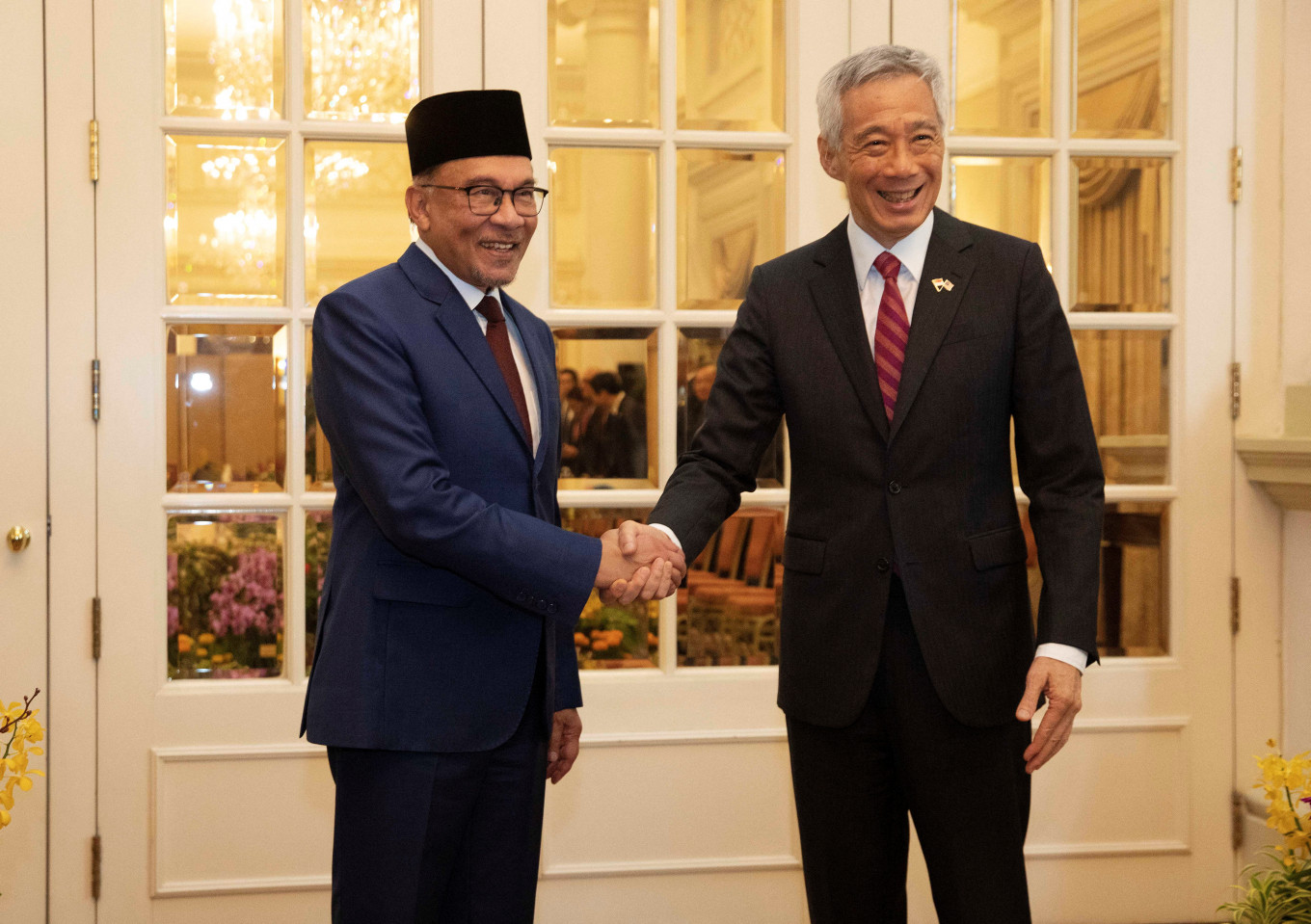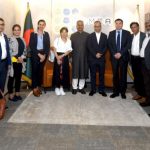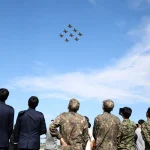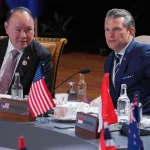
PM Lee, Malaysia PM Anwar to hold leaders’ retreat in Singapore, first to be held since 2019
SINGAPORE: Malaysia Prime Minister Anwar Ibrahim will lead a high-level delegation to Singapore for the 10th Singapore-Malaysia Leaders’ Retreat on Monday (Oct 30).
The annual retreat, the first to be held since the pandemic, is a key platform for the leaders of both countries to discuss bilateral issues and explore new areas of cooperation, Singapore’s Ministry of Foreign Affairs (MFA) said in a statement on Sunday.
The previous retreat was held in 2019 in Malaysia’s administrative capital Putrajaya and subsequent editions were postponed due to COVID-19 and successive changes in the Malaysian government.
This year’s retreat will also be Mr Anwar’s first in his current capacity as premier, and MFA said it is an opportunity for both countries to “take stock of the growing cooperation”.
Mr Anwar will arrive in Singapore on Sunday before attending the retreat the next day, where he will call on Singapore President Tharman Shanmugaratnam and meet Prime Minister Lee Hsien Loong.
The prime ministers and their delegations will then meet for bilateral discussions and witness the signing of bilateral agreements on key areas of cooperation, MFA said.
This includes updating a business development fund agreement and working together to develop small- and medium-size enterprises in both countries.
The retreat has historically produced some important agreements and is sometimes taken as bellwether of the bilateral relationship.
At the 2010 retreat, the two countries, after a years-long deadlock, reached an agreement over the future of railway land in Singapore owned by the Malaysian government, while the 2018 retreat yielded an agreement on the Johor Bahru-Singapore Rapid Transit System Link project.
Analysts expect this year’s edition to be similarly significant.
“This leaders’ retreat will be important from an optics standpoint because it will signal the move away from the Mahathir-led Pakatan Harapan administration in 2018 to an Anwar-led Unity Government administration starting in 2022,” said Dr Ong Kian Ming, director of the philosophy politics and economics programme at Taylor’s University in Malaysia.
Dr Mahathir Mohamad, who attended the 2019 retreat as Malaysia’s leader, frequently clashed with Singapore over issues like maritime boundaries and the price of water bought from Johor.
Dr Ong, who served as a deputy minister of international trade and industry in the Mahathir government, told CNA that ties between the two countries have “warmed up significantly” since Mr Anwar took the helm.
“Anwar doesn’t have the same kind of baggage and hangups with Singapore that was so obviously present with Mahathir,” he said.
“This means that it has been much easier to discuss possible areas of cooperation without having the shadow of old issues such as the water issue hovering in the background.”
Still, Dr Ong expects long-standing bilateral issues like Pedra Branca to continue being discussed.
In December 2022, Mr Anwar said after a Cabinet meeting that he had asked the attorney-general to clarify Malaysia’s claims on Pedra Branca, and that he hoped for discussions with Singapore to ensure there were no problems between the two countries.
The dispute over Pedra Branca – a strategic rocky outcrop at the entrance of busy shipping lanes in the Singapore Strait – dates back to 1979, when Malaysia published a map indicating that the island was within the country’s territorial waters.
The matter was brought to the International Court of Justice (ICJ) in 2003, and in 2008, it ruled that Singapore had sovereignty over Pedra Branca, while Middle Rocks was awarded to Malaysia and South Ledge belonged to the state in whose territorial waters it is located.
In January 2023, Malaysia’s then-attorney-general Idris Harun said in a statement that the Malaysian government respects the ICJ decision, although he added that a Mahathir administration decision in 2018 to withdraw Malaysia’s application to revise the ICJ judgment was “improper”.
Then in February, local media reported Mr Anwar as saying in parliament that the government will table a white paper on the Pedra Branca issue for “further action”, as the premier charged that the previous decision to drop the appeal had led to a loss of Malaysian territory.
“But I notice that the discussions on these sensitive issues have not been publicly disclosed which means that both sides want to work outside the public spotlight to find agreeable ways to resolve these issues,” Dr Ong added.
“This is a good sign.”
SPECIAL ECONOMIC ZONE, HIGH-SPEED RAIL ON THE AGENDA?
Beyond such issues, one important item on the agenda at Monday’s retreat is the planned Johor-Singapore Special Economic Zone (SEZ), which both countries said will bring tangible benefits in terms of jobs and better livelihoods for their people.
Johor Chief Minister Onn Hafiz Ghazi had told the state assembly in September that officials will discuss and finalise the SEZ’s operational details at the retreat.
While the zone is expected to drive sustainable growth, develop human capital, and improve infrastructure and connectivity, discussions are ongoing and few operational details have emerged.
Separately, Mr Anwar has also announced plans to designate Johor’s beleaguered Forest City development as a Special Financial Zone that analysts say could boost business cooperation between Singapore and Malaysia, although challenges like the poor financial health of Forest City’s Chinese developer Country Garden remain.
Mr Anwar, however, did not specify if this Forest City Special Financial Zone refers to the Johor-Singapore SEZ.
“I think a few proposals on the SEZ will be announced but whether this will include details of the Special Financial Zone involving Forest City remains to be seen, since Singapore will be very cautious with regards to involving this sensitive project in any discussions,” Dr Ong said.
Mr Onn Hafiz said the leaders of both countries will use the retreat to discuss the SEZ’s terms of reference, which according to Malaysian media will include development tasks and a timeframe.
He said the SEZ’s main objective was to ease the movement of people, services and goods between both countries, benefitting the electronics, pharmaceutical, automotive, agriculture, and renewable energy industries.
Dr Oh Ei Sun, a senior fellow with the Singapore Institute of International Affairs, said the SEZ will further integrate the already close-knit economies of both countries, with prospects for mutually beneficial developments.
But he said all eyes will be on a possible resurrection of the high-speed rail (HSR) project between Kuala Lumpur and Singapore.
“Because that is what is needed to connect the two metropolises for better collaboration, and that is also a major infrastructural undertaking,” he said.
The HSR project – which aimed to reduce travel time between Singapore and Kuala Lumpur to about 90 minutes – was called off on the first day of 2021 after multiple postponements at Malaysia’s request and an eventual lapsing of an agreement.
Malaysia paid more than S$102 million (US$76.25 million at the time) in compensation to Singapore for the terminated project.
But in July 2023, Malaysia announced it was seeking proposals from local and international firms to revive the project under a public-private partnership model, although Mr Anwar said in August this was still being discussed.
CNA understands that Singapore has yet to receive an official proposal from Malaysia on the matter.
Dr Ong said he is unsure if the HSR project will be on the agenda as Mr Anwar’s administration has not yet formally announced it wants to start talks with Singapore.
“I believe that other areas in terms of economic cooperation, joint investment promotion, food security, and sustainability will be on the agenda,” he said.
The Malaysian delegation attending the retreat includes Foreign Affairs Minister Zambry Kadir; Transport Minister Anthony Loke; Investment, Trade and Industry Minister Tengku Zafrul Tengku Abdul Aziz; Natural Resources, Environment and Climate Change Minister Nik Nazmi Nik Ahmad; Home Affairs Minister Saifuddin Nasution; Entrepreneur Development and Cooperatives Minister Ewon Benedick; and Attorney-General Terrirudin Mohd Salleh.
Singapore’s delegation includes Deputy Prime Minister and Finance Minister Lawrence Wong; Senior Minister and Coordinating Minister for National Security Teo Chee Hean; Foreign Affairs Minister Vivian Balakrishnan; Law and Home Affairs Minister K Shanmugam; Trade and Investment Minister Gan Kim Yong; National Development Minister Desmond Lee; Acting Transport Minister Chee Hong Tat; and Attorney-General Lucien Wong.






